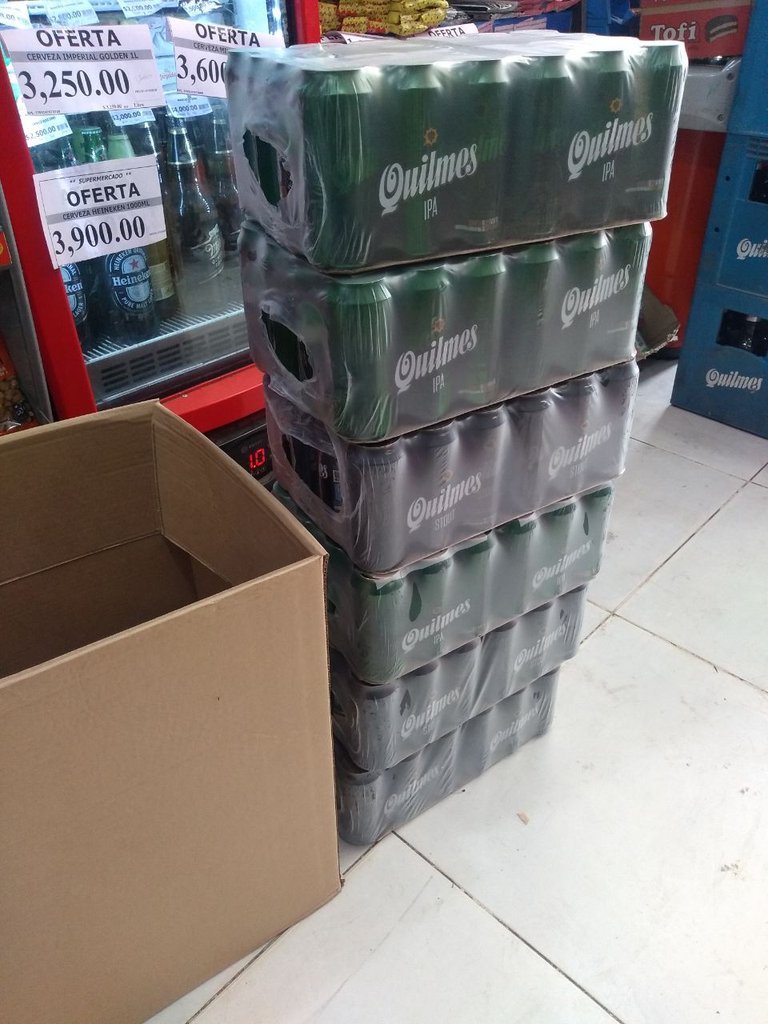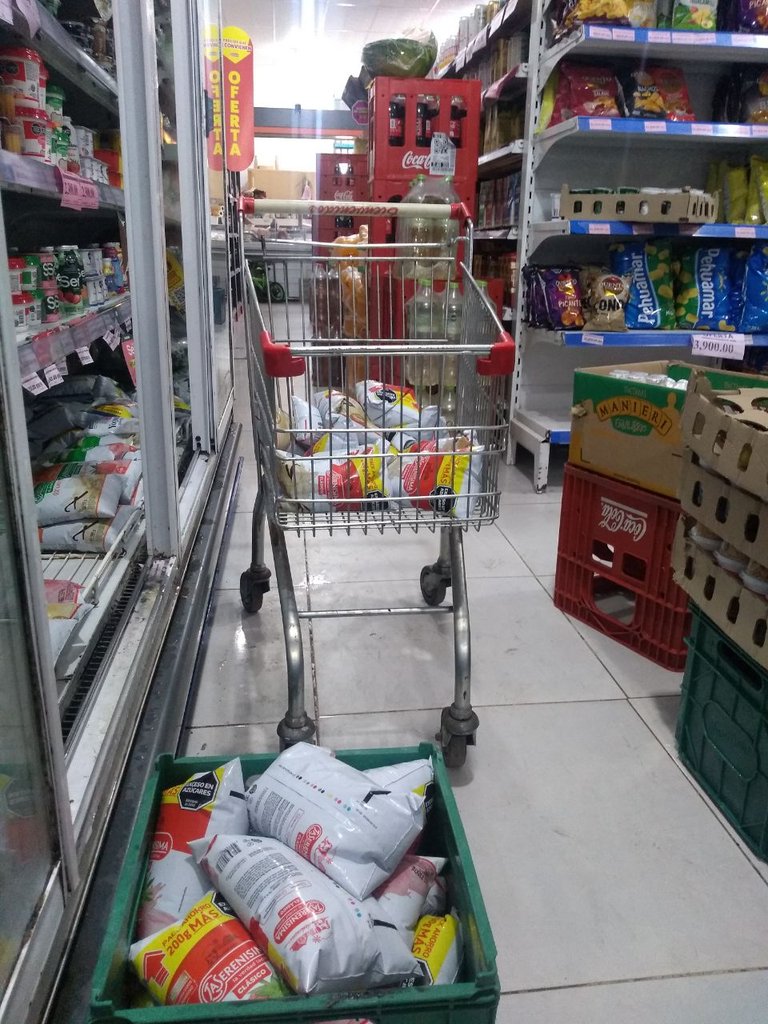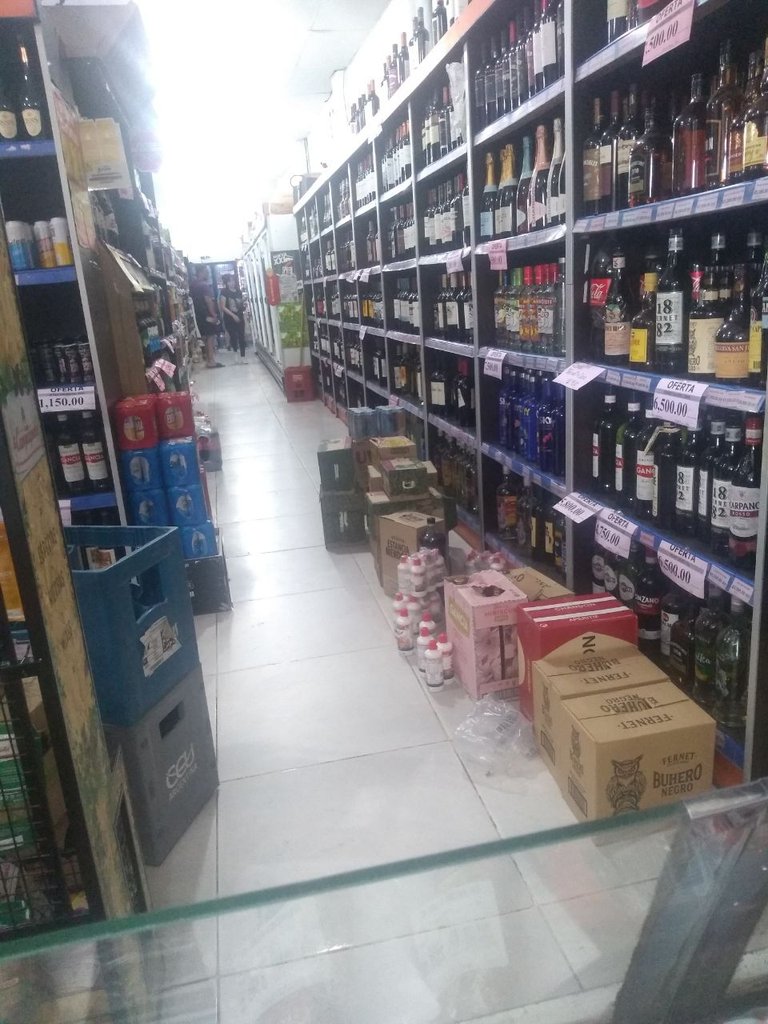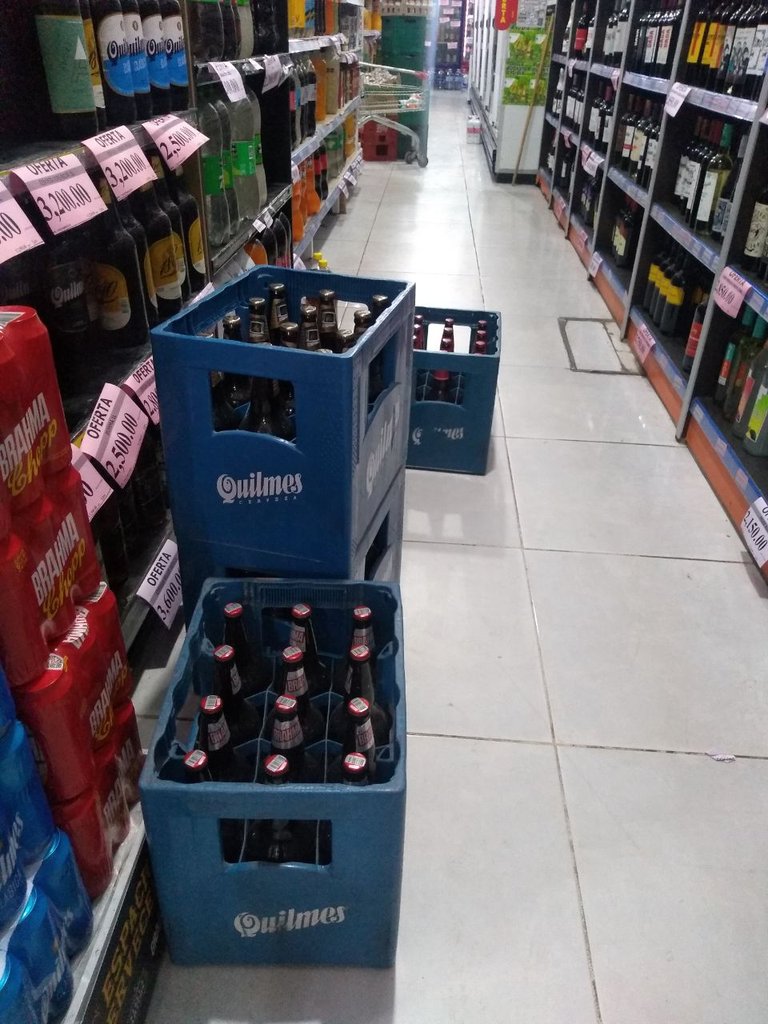
When we go shopping at a supermarket, we really just want to grab the products we need, go to the checkout, pay, and leave. But very few of us take on the task of knowing and seeing how the internal dynamics of these places are: I was one of those.
But life put me on the other side of this reality, when I emigrated, I started working at one of them. And well, the time spent in the long lines for payment during peak hours, cannot be compared to the hard work behind the shelves full of products arranged as if they were part of a magazine photo.
Behind all of this, there is the work of many people, not only the employees of the store, but also of all those who are responsible for placing orders, distribution, and not to mention the preparation and packaging of each of them.

In my job, the established routines indicate to us how heavy the days will be: Wednesdays and Saturdays can end up being literally crazy. An endless dance of trucks and truck drivers coming in and out to dispatch orders, leaving boxes, bags, and small items that have to be stored with precision. All of this in a matter of a few minutes, to wait for the next.
After a while, stepping aside to watch half a beef carcass go into the butcher's cold room is normal, although I confess that at first, seeing it up close made me a bit disgusted to eat meat, but I think it's a clear example of how humans end up getting used to what we see.

In my obsession with order, I suffered seeing dozens of scattered packages in the aisles, wanting to fix everything in minimal time. Now, I prioritize cold and frozen products, even in winter. That's why I have taken on the role of being in charge of the refrigerators, as I believe no one likes to be exposed to the cold for too long, but I really enjoy it.
But my actual function is to take care of the cold cuts, everything else is part of the teamwork, which is done in plain view of the shoppers, and that's why I struggle to understand how people show so little empathy when they decide, repeatedly, to arrive 10 minutes before closing time and complain about my unfriendly face when I serve them.

For the public, the "need to sell" makes them feel superior and demand good treatment, when they are the ones mistreating the seller, who after endless shifts, just wants to go rest.
I think we should think a bit about those realities that we don't see in the places we attend, then we would understand that in these "orchestras", if one instrument doesn't sound good, it damages the whole piece.

The customer asks, but the employees also do. Who is it in the owner's best interest to defend in any case?

Cuando vamos de compras a un supermercado, realmente solo queremos tomar los productos que necesitamos, ir a la caja, pagar y salir. Pero muy pocos nos damos la tarea de saber y ver cómo es la dinámica interna de estos lugares: yo era una de esas.
Pero la vida me puso del otro lado de esta realidad, cuando al emigrar, entré a trabajar en uno de ellos. Y pues, el tiempo invertido en las largas filas para el pago en las horas de más afluencia, no se comparan con el arduo trabajo que hay detrás de los anaqueles llenos de productos ordenados como si fueran parte de la foto de una revista.
Detrás de todo ello, está el trabajo de muchas personas, no solo de los empleados del local, sino de todos aquellos que se encargan de realizar los pedidos, la distribución y ni se diga de la elaboración y empacado de cada uno de ellos.

En mi trabajo, las rutinas ya marcadas nos indican, cuán pesado serán los días: miércoles y sábados pueden terminar siendo una locura literalmente. Una danza interminable de camiones y camioneros que entran y salen despachando los pedidos, dejando cajas, bolsas y menudencias que luego toca guardar con precisión. Todo ello en cuestión de pocos minutos, para aguardar al siguiente.
Luego de un tiempo, hacerse a un lado para ver pasar media res de ganado hacia la cámara fría de la carnicería, es algo normal, aunque confieso que al principio verla de tan cerca, hizo que me diera cierto asco comer carne, pero creo que es un claro ejemplo de cómo los humanos nos terminamos acostumbrando a lo que vemos.

En mi manía por el orden, puedo decir que sufría viendo docenas de paquetes regados por los pasillos, queriendo arreglarlo todo en un tiempo mínimo. Ahora, le doy prioridad a los productos fríos y congelados, así estemos en invierno. Por eso, me he adjudicado el cargo de encargada de las heladeras, pues creo que a ninguno le gusta estar tanto tiempo expuesto al frío, pero yo realmente lo disfruto.
Pero mi función en realidad es encargarme de los fiambres, lo demás es parte del trabajo en equipo, que se hace a la vista de los compradores, y por ello me cuesta un poco entender cómo las personas demuestran tan poca empatía cuando deciden de manera recurrente, llegar 10 minutos antes de la hora del cierre, y quejarse por mi cara de pocos amigos cuando les atiendo.

Para el público, la "necesidad de vender" los hace sentirse superiores, y demandar un buen trato, cuando ellos son quienes maltratan al expendedor, quien luego de jornadas interminables, solo desea irse a descansar.
Creo que debemos pensar un poco sobre esas realidades que no vemos de los lugares a donde asistimos, así entenderíamos que en estas "orquestas" si un instrumento no suena bien, se daña toda la pieza.

El cliente pide, pero los empleados también lo hacen. A quien le conviene al dueño defender en todo caso?
Foto/Photo by: @mamaemigrante
Edición/Edited by @mamaemigrante using canva
Tattooworld animated banner
Translated and formatted with Hive Translator by @noakmilo.

Posted Using InLeo Alpha

